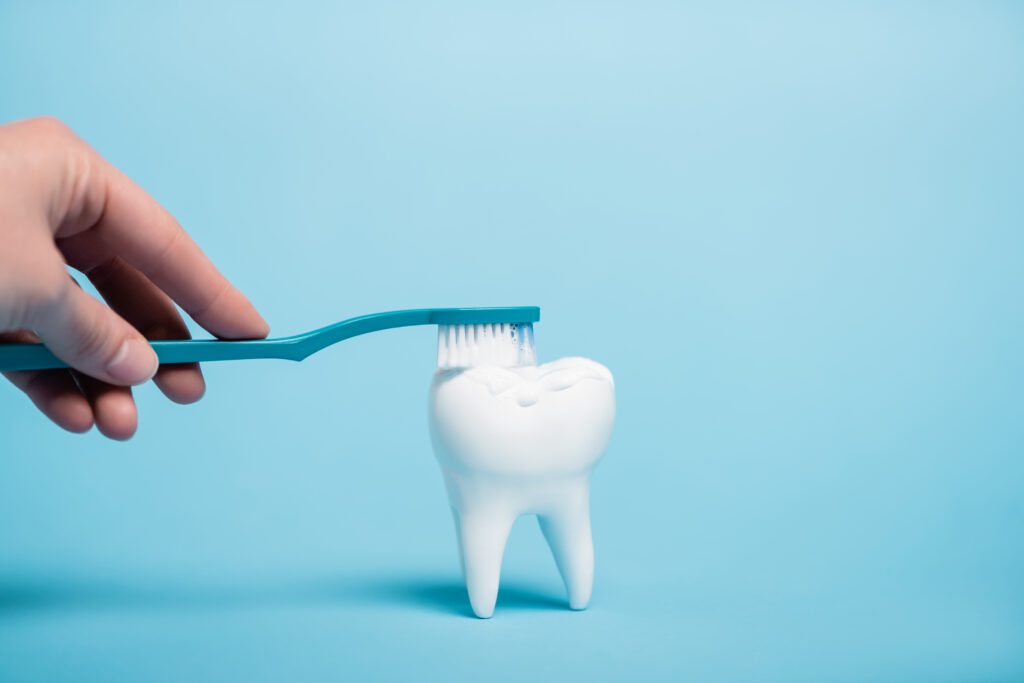In a landmark move to tackle oral health inequalities, the government is partnering with Colgate-Palmolive, in a five-year deal that will see more than 20 million dental care products delivered to the NHS and supervised toothbrushing in schools, to help improve dental hygiene in children across Britain.
The initiative is part of the government’s ‘Plan for Change,’ a set of measurable targets they are aiming to meet by the end of this parliament, one of which is ensuring that 75 per cent of five-year-olds in England are ‘ready to learn’ when they start school.
It comes as the government adopts a new approach to healthcare, aiming to focus more on preventing health issues, as opposed to treating symptoms when they arise. It is hoped that this new partnership with Colgate-Palmolive will play a key part in this prevention drive, at a time when a lack of oral hygiene is one of the main causes of health issues in children and has been described as ‘our most desperate political emergency’ by Labour MP Peter Prinsley in an article he wrote for us last month.
Currently tooth decay is the most common reason that children aged five to nine in England are hospitalised, with approximately 70 children a day having a tooth removed due to decay. According to Prinsley, who is an Ear, Nose and Throat surgeon by profession, this number is far higher than it was 15 years ago.
Prinsley also argued that it is poorer communities that are most affected by the dental crisis, a claim backed up by Health Minister Stephen Kinnock, who said yesterday that roughly 60 per cent of children in the most deprived parts of England have suffered from tooth decay. Kinnock described this statistic as ‘Dickensian,’ and it highlights that action on child dental hygiene is urgently needed.
It is estimated that across five years, the scheme will see 23 million oral hygiene products delivered to children in deprived areas across England. More than two million of these products have already been delivered, with another three million expected to be delivered by the end of the year.
It is projected that roughly 600,000 children will benefit from the programme this school year alone, 9,500 of whom will be in Sheffield, where Kinnock was speaking yesterday.
“It is an extremely positive step to see the roll-out of the Government’s supervised toothbrushing initiative in-action. ADG members from dental groups from up and down the UK tell us that targeting areas with the greatest oral health needs with prevention-focused interventions are highly effective at turning around outcomes for children. Supervised toothbrushing schemes are evidence-based and we know that they will deliver back to the NHS over the next few years. It is both cost effective and the right thing to do. With the huge gap in the dental workforce currently it means that we currently have populations of people living in ‘Dental Desert’ areas, so initiatives such as supervised toothbrushing are more important than ever.”
Neil Carmichael – Chair, Association of Dental Groups
The delivery of dental products will be coupled with a supervised toothbrushing scheme, to help children develop positive oral hygiene habits. This supervised scheme has been welcomed by dentists, with Dr Oosh Devalia, President of the British Board of Paediatric Dentistry saying that her organisation has been ‘pushing for (supervised toothbrushing) for over a decade.’
Devalia described it as an ‘evidence-based intervention’ that will give children a ‘better oral health start in life.’ However, she caveated her praise by adding that ‘there is still much to do’ to ensure that all children receive adequate dental care.
Other steps the government are taking to ensure the oral health of children and adults across England include expanding water fluoridation to the north-east and the opening of Best Start Family Hubs, which will act as a one-stop shop for families to receive support in a wide range of areas, including their child’s oral hygiene, in every local authority.
From a financial perspective, the partnership with Colgate-Palmolive is expected to generate a positive return for the government, at a time of serious fiscal difficulty. It is projected that for every £1 invested into the scheme, a return of £3 will be generated, largely in the form of reduced NHS expenditure; the government claims that the total potential return for the five-year programme is more than £34 million.
Whilst the initial projections and reactions are largely positive, it still remains to be seen whether this programme will be a success, with there being much work to be done to ensure that it actually has a positive impact on children’s oral health.
It will be imperative to ensure that staff in early years institutions have sufficient training, so that they can effectively supervise children’s toothbrushing. Furthermore, changing habits take time, so steps will have to be taken to ensure that children continue to brush at home when they are not being supervised by early years staff. Monitoring the progress of these children, such as by tracking hospital admissions or rates of tooth decay, will be crucial.
Additionally, steps to improve water fluoridation would be beneficial. Despite the government’s current efforts to expand access to fluoridated water in the north east, there are still large swathes of England without it, thus depriving much of the population of a mineral that strengthens tooth enamel and helps prevent decay.

Nevertheless, the government’s partnership with Colgate-Palmolive is certainly a step in the right direction. By shifting focus from treatment to prevention, providing hundreds of thousands of children with access to dental products, and offering supervised toothbrushing to ensure said products are used appropriately, the government is taking positive action to resolve the dental issues that far too many children in this country are facing.
Whether the programme will translate into measurable drops in decay and hospital admissions remains to be seen, but the early signs suggest a serious intent to make a difference.

